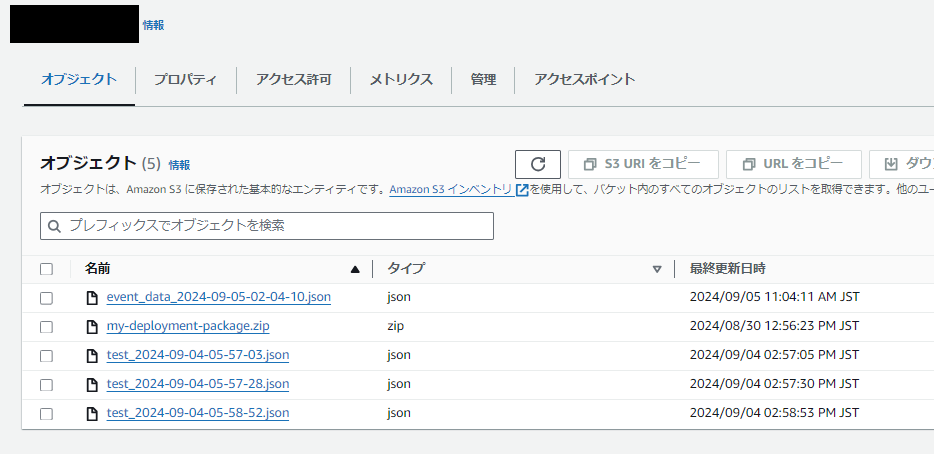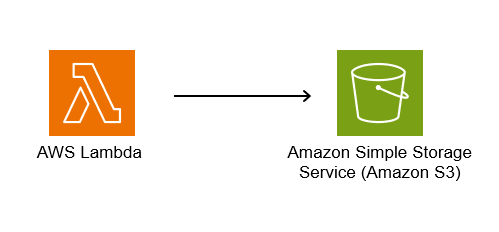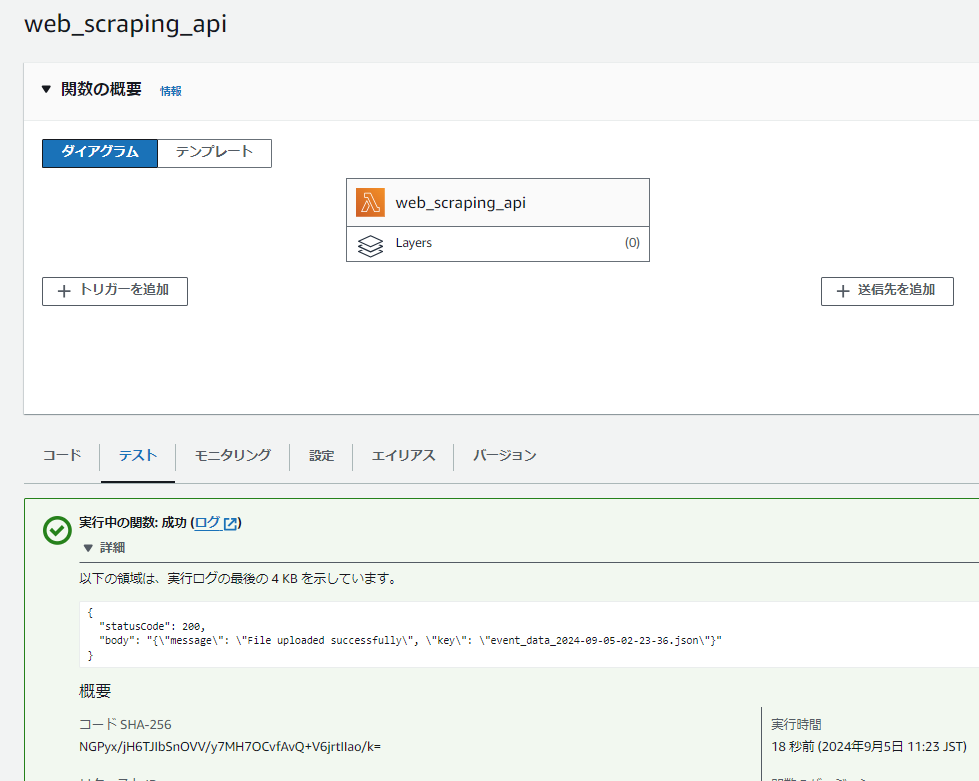LambdaからS3に保存
以前作ったlambdaの関数↑から、取得したJSONファイルをS3へ保存させるようにしました。
S3への保存にはboto3が必要
以前作成したコードに
boto3
のインポートを追加します。
import json
import boto3 //ここを追加
from datetime import datetime
import requests
from bs4 import BeautifulSoup
import urllib3
boto3からS3オブジェクトを呼び出す
boto3.resource('s3')
でS3のオブジェクトを呼び出し、ファイルを読み書きできる変数を作ります。
# 警告を無視する設定
urllib3.disable_warnings(urllib3.exceptions.InsecureRequestWarning)
s3 = boto3.resource('s3')
以下は同様
def get_h3_with_images(class_name_h3, class_name_img, url):
response = requests.get(url, verify=False)
soup = BeautifulSoup(response.content, 'html.parser')
h3_tags = soup.find_all('h3', class_=class_name_h3)
result = []
for h3 in h3_tags:
img_tag = h3.find_next('img', class_=class_name_img)
img_src = img_tag['src'] if img_tag else None
result.append({
"title": h3.get_text(strip=True),
"img_src": img_src
})
return result
def get_event_details(url):
response = requests.get(url, verify=False)
soup = BeautifulSoup(response.content, 'html.parser')
details_list = []
events = soup.find_all('div', class_='event_detail')
for event in events:
details = {}
start_time = event.find('div', class_='col left', string='開催時期')
if start_time:
details['開催時期'] = start_time.find_next_sibling('div').get_text(strip=True)
end_time = event.find('div', class_='col left', string='終了時期')
if end_time:
details['終了時期'] = end_time.find_next_sibling('div').get_text(strip=True)
location = event.find('div', class_='col left', string='場所')
if location:
details['場所'] = location.find_next_sibling('div').get_text(strip=True)
details_list.append(details)
return details_list
def lambda_handler(event, context):
current_month = datetime.now().month
if 3 <= current_month <= 5:
season = 'spring'
elif 6 <= current_month <= 8:
season = 'summer'
elif 9 <= current_month <= 11:
season = 'fall'
else:
season = 'winter'
url = f'https://otaru.gr.jp/{season}'
class_name_h3 = 'head_item event_title'
class_name_img = 'attachment-3x2 size-3x2 wp-post-image'
h3_with_images = get_h3_with_images(class_name_h3, class_name_img, url)
event_details = get_event_details(url)
events = []
if h3_with_images and event_details:
for i in range(min(len(h3_with_images), len(event_details))):
events.append({
"title": h3_with_images[i]['title'],
"img_src": h3_with_images[i]['img_src'],
"details": event_details[i]
})
requirements.txtの編集
boto3を追加します。
requests
beautifulsoup4
urllib3==1.26.5
boto3 // 追加
取得したJSONをS3にアップロードする
s3変数に
buket:バケット名
key:保存するJSONファイル名
を.Object関数で設定します。
.put関数でJSONファイルをアップロードし、成功するとステータスコード200を返すようにします。
file_contents = json.dumps(events, ensure_ascii=False)
bucket = 'バケット名'
key = 'event_data_' + datetime.now().strftime('%Y-%m-%d-%H-%M-%S') + '.json'
s3_object = s3.Object(bucket, key)
response = s3_object.put(Body=file_contents)
return {
'statusCode': 200,
'body': json.dumps({"message": "File uploaded successfully", "key": key}, ensure_ascii=False)
}
lambdaへコードをアップロード
以前と同様、インポートしているモジュールをファイルへ保存し、
そこへlambda_function.pyも格納してzipファイルを作成、
lambdaにアップロードします。
手順は以下
実行結果
テストを実行した結果、ステータス200で成功しているのがわかります。
S3の該当バケットを確認するときちんとJSONがいらっしゃいます。
「event_data_..... .json」がWEBスクレイピングで取得できたデータです。

リポジトリ


